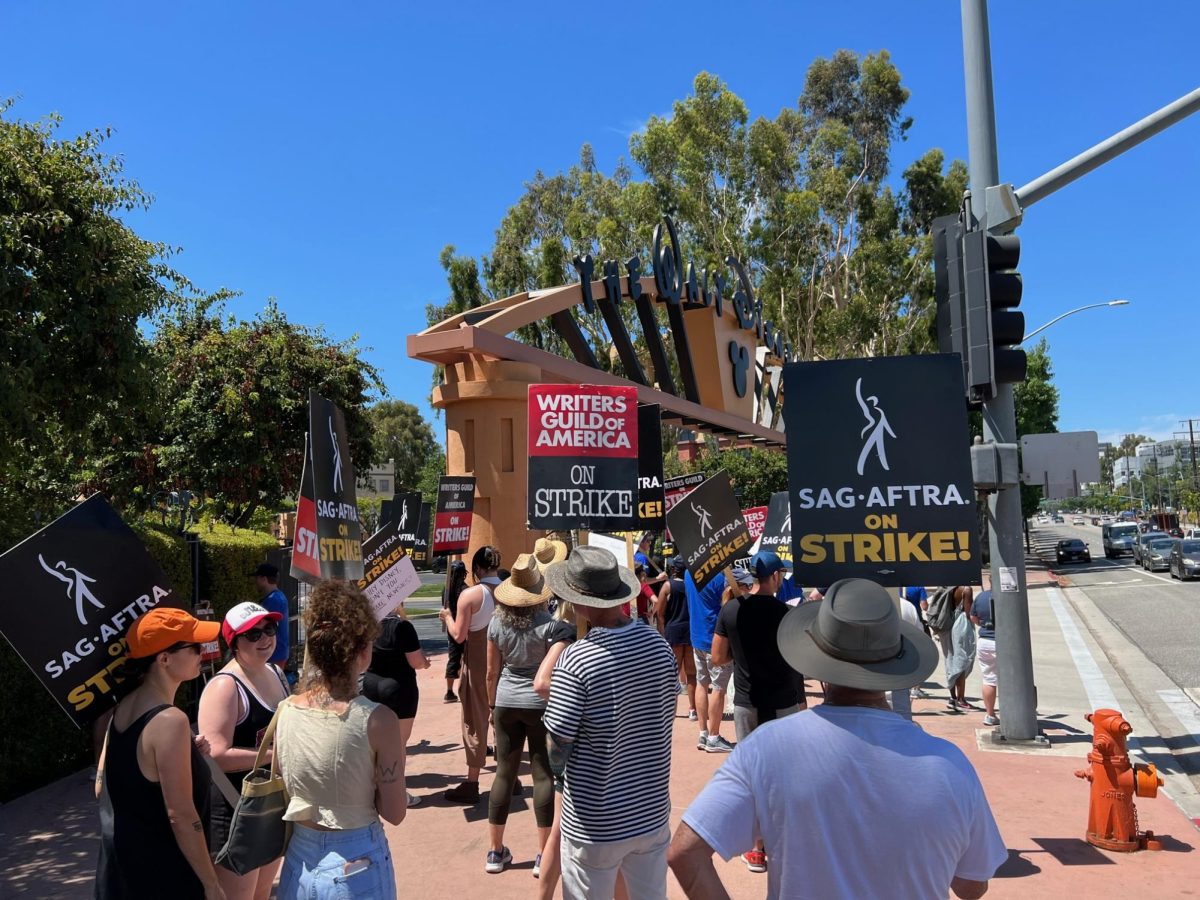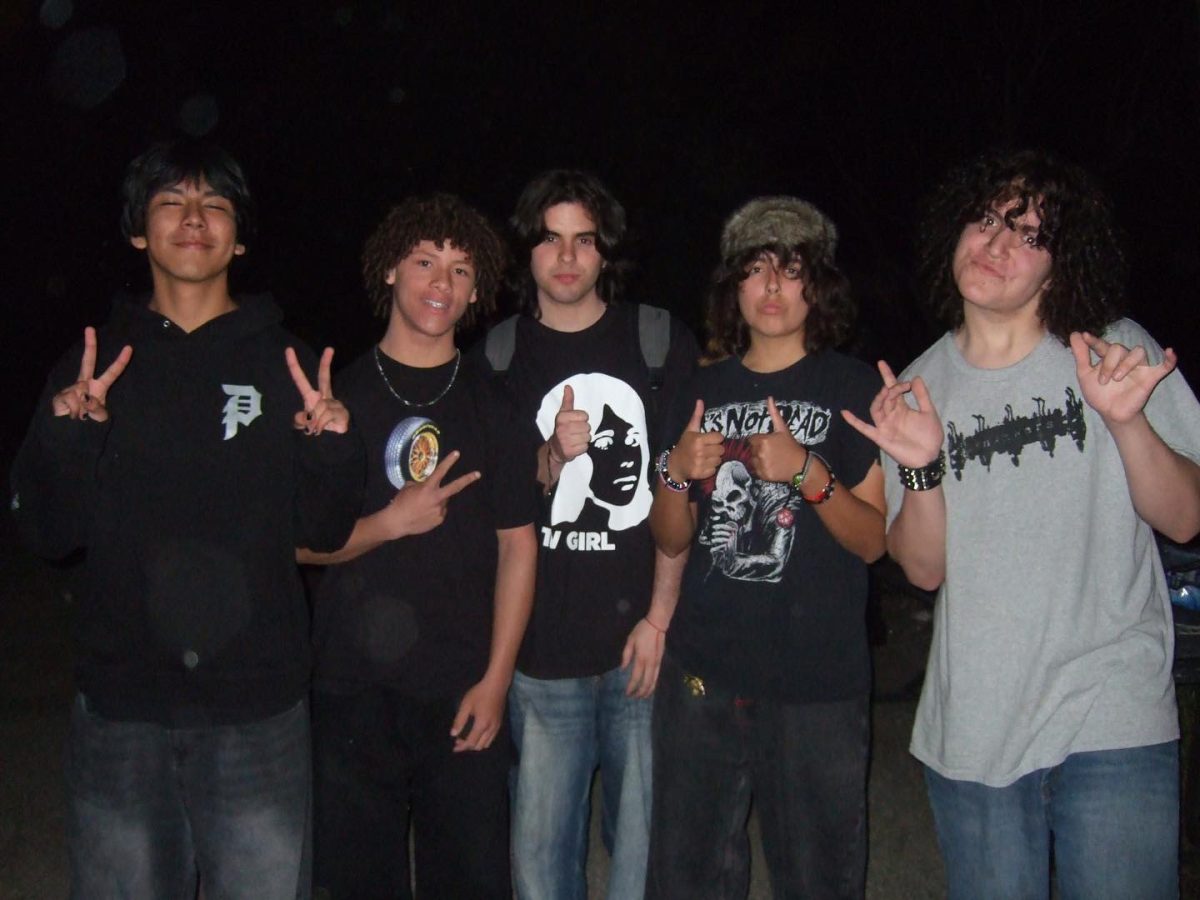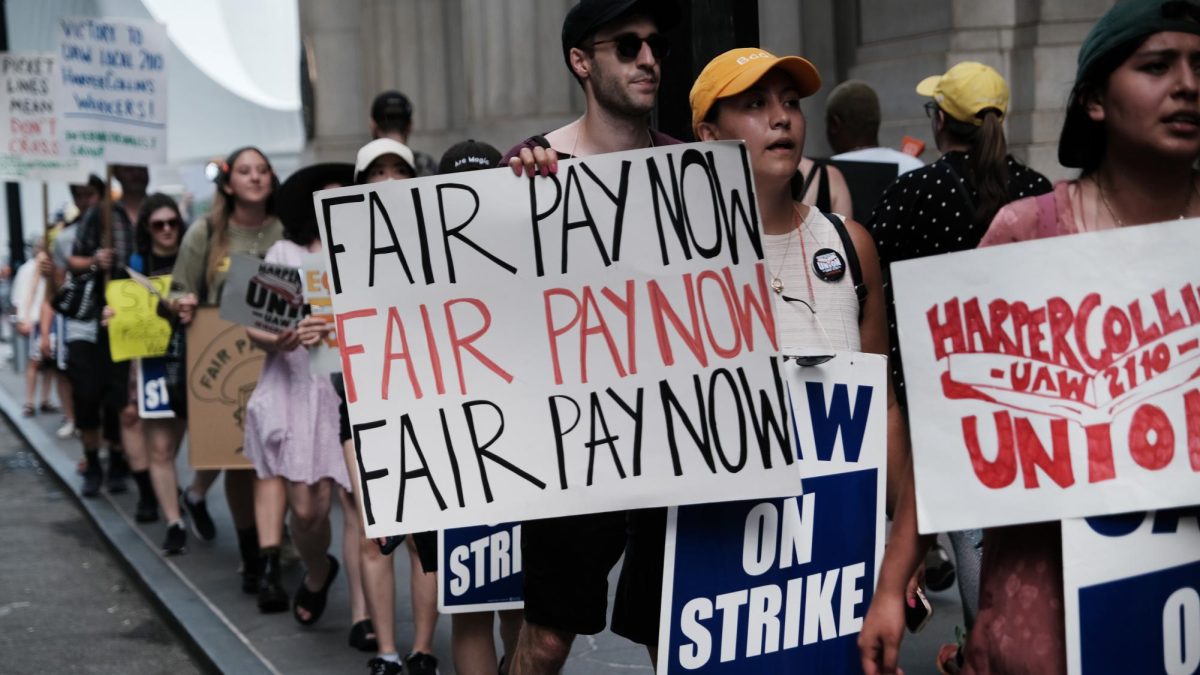Since May 2, the Writers Guild of America (WGA), has been on strike from studio productions due to disagreements between the WGA and the Alliance of Motion Picture and Television Producers (AMPTP). The dispute concerns writers’ wages, residuals, and protection from artificial intelligence. This has sparked a standstill not only in Hollywood, but in the nationwide film industry. To add to the halt, the Screen Actors Guild, otherwise known as SAG-AFTRA, agreed to go on strike as well on July 14. It’s the first time the two unions have joined in a strike together since 1960.
After long but unagreeable negotiations between the WGA and the AMPTP, the writers felt there was no other choice but to strike productions on May 2. This is the first time the WGA has gone on strike since the fall of 2007.
But this time, the writers are fighting for higher residual pay for reruns, higher wages, and protection from artificial intelligence. Due to AI developing at a rapid rate, there is some concern from WGA that the AMPTP will eventually decide to replace writers with artificial intelligence to screenwrite.
SAG-AFTRA agreed to go on strike on July 14 after the SAG actors and the AMPTP refused to agree on whether background actors should be protected from their faces being reused with artificial intelligence in other productions without financial compensation. It’s the first time that SAG-AFTRA has been on strike since 1980. SAG is also simultaneously fighting for better wages and residuals with the WGA.
Due to the production halt, many well-known actors have spoken out against the greed that runs through the AMPTP.
“We are the victims here. We are being victimized by a very greedy entity,” said actress and SAG-AFTRA President Fran Drescher in a press conference when SAG decided to go on strike. “I am shocked by the way the people we have been in business with… are treating us. I cannot believe it quite frankly.”
Other people, such as the executives of companies like Netflix and Disney, have fired back against Ms. Drescher and the actions taken by the SAG and the WGA.
“It will have a very, very damaging effect on the whole business,” said Bob Iger, the Chief Executive of Disney, when talking about the economic impact the strikes are going to have on the entertainment industry.
Individuals at Castaic high school have also spoken out about the rapacity of studio companies.
“I think that a lot of people undervalue behind-the-scenes workers on films and TV, whether that be writers, editors, or the people who maybe don’t get all of the glitz and glamor of Hollywood fame,” said Charles Deuschle, the video production teacher at Castaic, “But, I think it’s about time that they really stood up for themselves, and I’m glad that they’re taking a stand to make sure that they can make enough of a living to support themselves.”
On August 9, Drescher announced in a letter addressed to her fellow union actors that SAG-AFTRA is in an “Interim Agreement” with “truly independent” production companies to continue projects without major studios.
“A key element in our strike strategy is our Interim Agreement, which is being granted to certain vetted and truly independent productions. Along with the many other nonstruck contracts our members can currently work, these agreements give journeymen performers and crew the opportunity to pay their bills and put food on the table by working on these indie projects — projects which are not only agreeing to all the terms in our last offer to the AMPTP, but all the righteous proposals our members deserve that the studios rejected,” Drescher stated.
Aspiring actor and Castaic senior Chandon Moon weighed in on how he thinks the strike should be resolved.
“I think the best way to resolve any form of strike or rebellion is compromise,” Moon stated, “So I think that they just need to work out a compromise that works for both sides and just mainly talk about it and figure out what needs to be done for the actors and the writers for their job security and to also not put too much of a burden onto the companies themselves.”
Recently, the WGA has restarted negotiations with the AMPTP, yet no progress has reportedly been made.
“I’ll be really curious to see if they can come to some sort of agreement,” Mr. Deuschle added. “I know that for studios… the bottom line is always how much money they’re going to make. It is a business. I’ll just be really curious to see if they maybe develop a bit of a heart and learn to look past the bottom line and maybe take better care of their employees.”





















